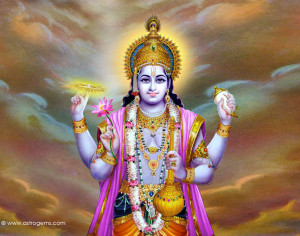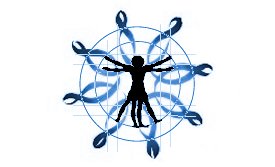Act Two – Vishnu, the Preserver
There are three components to creation. Our universe is not permanent or stable. Thus, once it comes into being, it requires preservation. Hindu philosophy has ascribed the role of Preserver to Lord Vishnu. Although God cannot be seen or touched or even imagined, humankind has envisioned and described Him in many forms.
Lord Vishnu represents balance and harmony. Nine incarnations, known as avatars or descents, have emanated from Lord Vishnu and a final incarnation is expected to come.
To learn more, see On Hinduism by Irina Gajjar



















